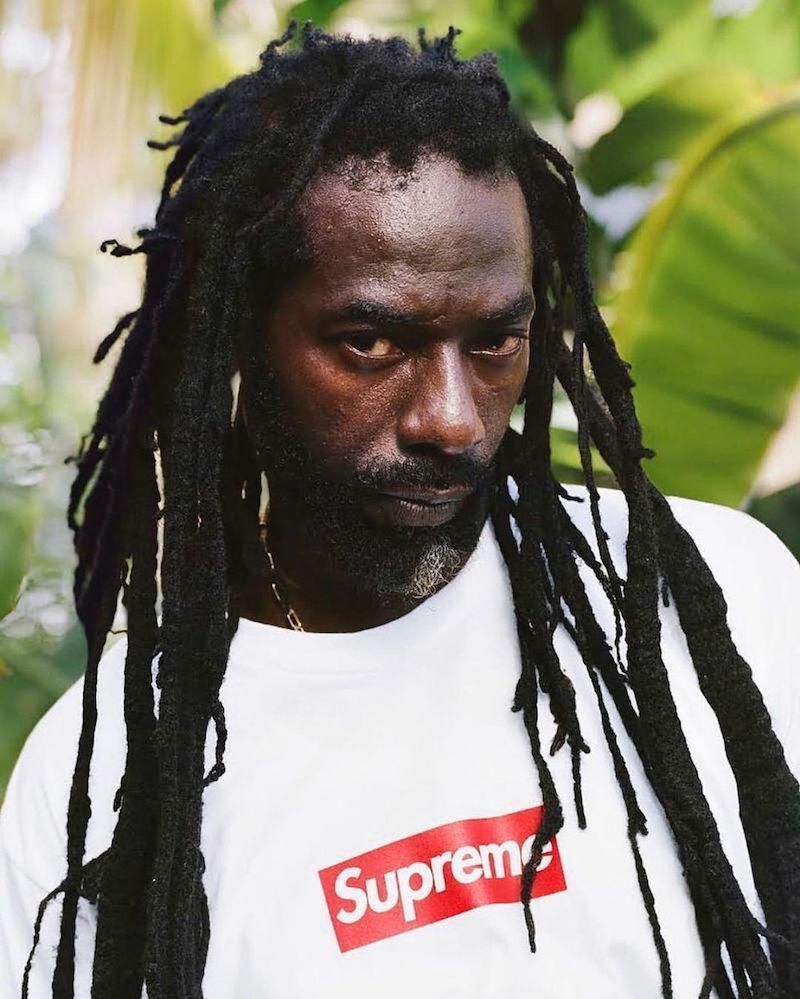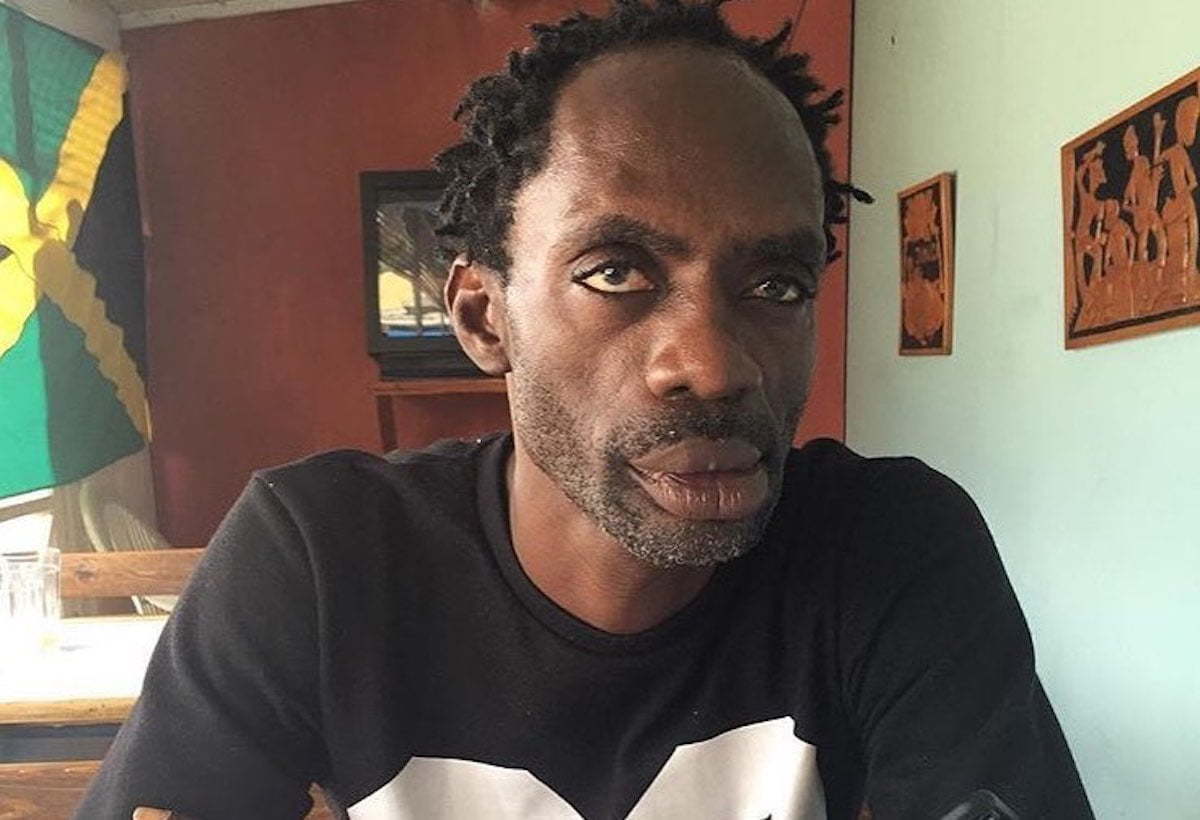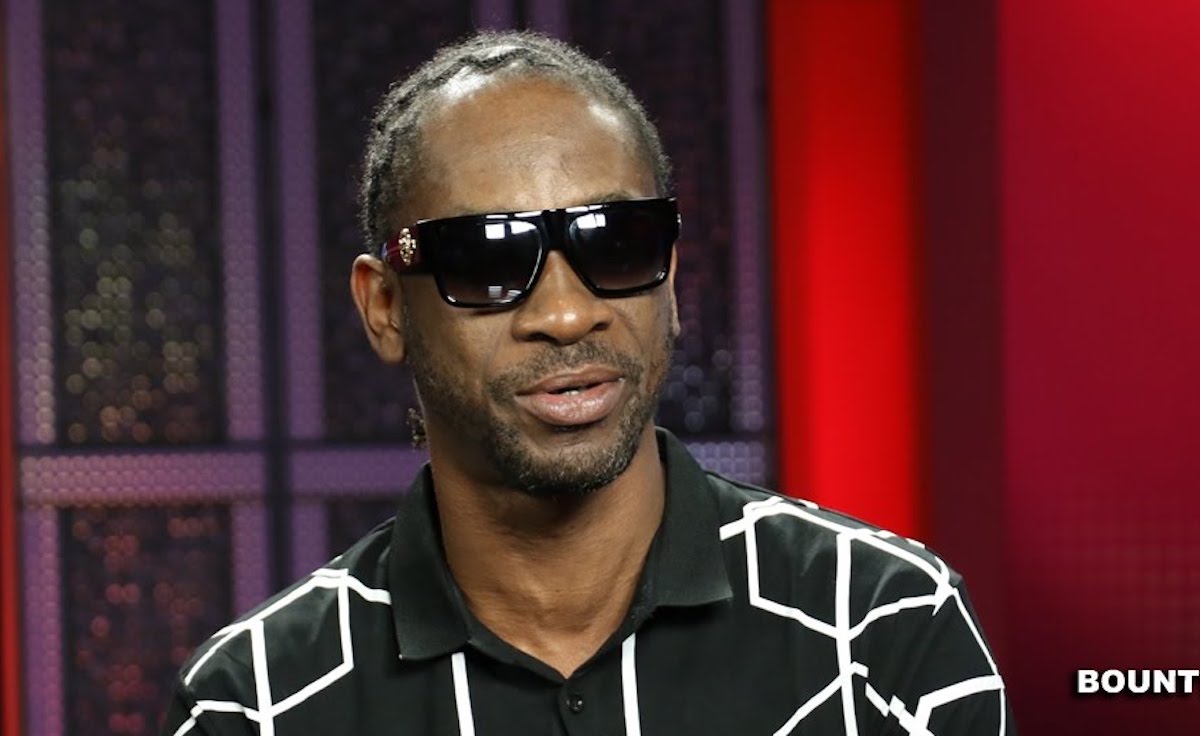Bounty Killer credits Buju Banton and Ninjaman for influencing his early career in dancehall.
Rodney Basil Price, Bounty Killer’s government name, also goes by the monikers, the Grung Gad, The Warlord, and probably the title he wears closest to his heart, The Poor People Governor. There is a reason he was awarded the special title by the people of Jamaica; he never stops going the extra mile for the meek in society. Even with all the fame Killer has attained, he still finds a way to pay homage to the other greats who have helped to pave the way for his success.
While ‘vibing’ with Serani during a recent studio session, Bounty revealed the persons who have helped him to become the household talent he is today. He listed Buju Banton and Ninjaman as the biggest influences on his career.
Before explaining just how both men aided in his success, he gave Serani and other studio occupants a rundown of just how much of an unruly child he was. He recounted that his reign of terror was between the ages of 12 and 16. However, he really began to listen to his father’s teaching to refrain from wayward friendships after getting shot at the age of 14.

As the interview progressed, Bounty Killer can be heard fusing a section of Buju Baton’s 1992 hit “Batty Rider” with his first hit single, “Copper shot.” Bounty used the opportunity to express just how much he admired Buju, and how much of a role Gargamel played in his hit single.
He explained that this was what made it so difficult to address Buju when he dragged the microphone from a then relatively unknown Vybz Kartel[previously named Addi Banton] after Bounty introduced him at Reloaded in the year 2000. “Gargamel the yout dem of today a the man of tomorrow, take time wid them,” he said, reliving the now iconic words spoken 20 years ago.
“Buju ave a lot fi do with my success…the wol a dancehall” he proudly stated. “Buju help me indirectly, Shabba help me indirectly, Ninjaman help me directly,” Bounty said as he listed some of the best to ever do it in dancehall and reggae.
The direct help from Ninja, which Bounty was alluding to, is the hit single between himself and Desmond Ballentine, “Badman A No Cub Scout,” produced by King Jammy’s.
“Him a the only one me get the combo wid. When me need help inna the young days a Ninjaman gimme. And when Jammy’s say voice with me him never think twice. Him a the fuss big artiste wa say yuh wicked Yout!,” explained Bounty.

The Warlord belted out a profound statement to show just how much he respects Ninja Man. “Outa all a the man dem wa me look up to and idolize, Ninjaman a the man.”
Serani interjected by stating that Bounty Killer was his version of Ninjaman, as Killer is the man who motivated him to step away from the mixer and move into the booth and in front of the microphone. Killer stopped the praises being tossed upon him to issue yet another lesson involving Ninja.
“You see when me voice “New Gun” a so me know Ninjaman. Me come from foreign eno dem time de a big tape a run the place. The man come with a big tape and we wa hear Ninjaman reaction so we go out de and say Ninjaman, we have a likkle yout wa have wa bad tune and him say play it. Nuff big artiste woulda gwaan like him no wa rally roun day – no wa play no new yout.”
“Yuh see when the man hear bloodc____t “New Gun” the man nearly mash up him tape. From de so we extra rate him from we see how him gwaan over we song,” Bounty added.
The Killer saw that moment as the reason Ninja delivered such a solid verse on their collaborative effort. He said, “A the last bad song that Ninja record eno… Him put out him bloodc____t heart pon it cause him convince say a wa badboy me a sing wid. Dem time de me a likkle yout not even know how bad me is. A when me grow further and listen back to how Ninja go hard pon me song me realize say yow you did bad yout.”
Bounty then listed another top icon that Ninjaman helped up the rungs of dancehall. “Ninja help Shabba too. Ninjaman money voice,” he said before singing a line from Shabba’s hit track “Needle Eye.”
“Tha Punany Riddim de a Ninjaman put out tha production de pon Jaro label. Done a Seaview dem come voice, Wayne Smith Studio. Me roun de as a likkle yout a watch dem eno cause a 2 block that from me yard.”
He would go on to confess that the first time he records “New Gun” was during 1990 in Seaview Gardens at Wayne Smith’s studio aboard the Top Secret Riddim, which also featured Buju Banton’s “Top A Di Top.” He would later head to King Jammy’s studio in 1992 to lay down the hitmaking version of the song on the Punany Riddim.
“When it come to helping yout, Sugar Minott and Ninjaman, Junior Ried, dem people de, dem yout de look out fi yours.”
In May, rumors circulated that Ninja Man, who is currently serving life in prison, was being neglected. Bounty Killer took to Instagram to express that “ninja have enuff kids and grandkids musically or biologically to assist in whatever ways.” He added, “my Don that despite whatever the needs I’m here indeed blessings goes out.”
When asked if what is the reason he decided to help so many of dancehall’s biggest names to reach their full potential, he said, “Me no emulate it, it just inna me. When certain things happen to you, it just inna you, when people take care of you, you wa take of people, A me lifestyle!”
